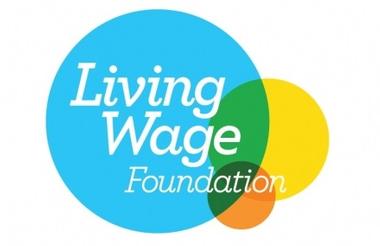Charities that pay staff the real living wage including Oxfam GB and the Joseph Rowntree Foundation have pledged to continue doing so after the rate increased by its highest ever margin to £10.90 an hour this week.
The Living Wage Foundation (LWF) announced yesterday that the rate, which aims to reflect the true cost-of-living, had increased by 10.1% (£1) for workers across the UK to £10.90 an hour.
Meanwhile, the rate for those in London increased by 90p to £11.95 an hour.
Almost 3,000 charities are accredited by the LWF including Oxfam GB, the Joseph Rowntree Foundation, Carers UK, Blackpool Carers and the British Educational Research Association (BERA), who all said they would pay staff at least the higher rates and encouraged others in the sector to do so.
Umbrella body ACEVO, which is also an accredited LWF employer, acknowledged that many charities are “squeezed between static or even reducing income and ever-increasing levels of demand” but “cannot meet the challenges ahead by sacrificing the wellbeing of our staff”.
Higher rates will create ‘additional financial pressures’
Blackpool Carers, a charity with an income of £1.4m that supports unpaid carers across Blackpool, said it is committed to continuing to be a real living wage employer, but admitted that the new rates will create extra financial pressures on the sector.
Tom McMurdo, director of finance and resources, said: “There will be few living wage employers who are surprised by [the] announcement. As an amount which we know to be calculated from the real cost of living, the new rate was always going to be reflective of the pressures being experienced across the economy. Our decision to become a living wage employer was an ethical one and our continued involvement will not be influenced by an increase in cost.
“If you believe, as an organisation, that everyone who is employed should be able to afford to meet their essential needs, then the cost of those essentials must continue to be factored into your salary offer, even if it becomes difficult. Undoubtedly, [the] announcement will create additional financial pressures on the charity, but our staff should not be expected to suffer a real-terms pay cut in yet another period of increased demand and need amongst our carers.”
Meanwhile, a spokesperson for Oxfam GB said: “Oxfam is committed to continuing to be a living wage employer. We’re currently reviewing the impact of the increase.”
And a spokesperson for BERA said: “We’ll continue to be a living wage employer and are in agreement during the current cost-of-living crisis that the foundation’s raise was necessary. We’re currently able to afford the increased costs and will continue to meet, and where we can, exceed, the London living wage.
‘We cannot meet the challenges ahead by sacrificing the wellbeing of our staff’
ACEVO welcomed the increased rate and encouraged civil society organisations to become accredited.
Jane Ide, chief executive officer, said: “Workforce poverty is a very real and increasing issue and it’s essential that the wages of the lowest paid in our communities are given this uplift in the light of increasing inflation and cost-of-living pressures.
“For our own sector we know only too well that too many organisations are squeezed between static or even reducing income and ever-increasing levels of demand, and that any increase in operating costs is increasingly hard to absorb.
“But we cannot meet the challenges ahead by sacrificing the wellbeing of our staff. This sector is rocket fuelled by commitment, determination, energy and compassion and everyone working in our sector deserves to be treated fairly and equitably.”
More charities becoming accredited
The LWF usually announces the rates in November but brought them forward this year to reflect the “extraordinary rises” in the cost of living.
So far, the LWF has accredited 11,330 employers. Of these, 2,955 are charities, just over a quarter.
It urged accredited employers, including charities, to implement the rise “as soon as possible”, but said they have until 14 May to do so.
The LWF’s rate differs from the government’s National Living Wage, which requires people aged 23 and over to be paid at least £9.50 per hour.
Full-time workers paid the new real living wage will earn £21,255 per annum, while those in London will earn £23,302.50 per annum.
This represents an additional £2,730 a year compared with individuals earning the current government minimum wage, and £1,950 more than their current salary. Workers in London will get an extra £4,778 a year compared with those on the current government minimum wage.
A spokesperson for the LWF told Civil Society News that the number of employers accrediting with the foundation has grown at “record pace”, with 1,246 third sector organisations becoming accredited since March 2020.
They said: “Employers want to do what’s right for their employees and many have already told us they will be implementing the new rates to help their workers with the cost-of-living crisis. We also know that paying a real living wage brings benefits to employers as well as workers, including improved retention, motivation and reputation.”
Related articles










